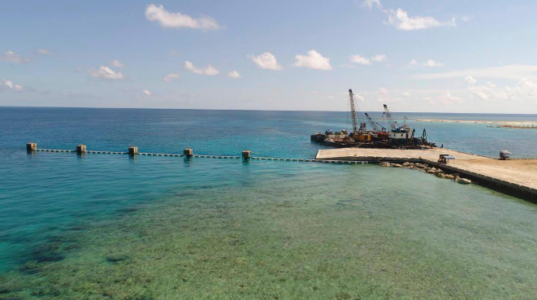Deputy Prime Minister Lawrence Wong emphasizes the importance of the inaugural India-Singapore Ministerial Roundtable for ongoing collaboration in various sectors.
SINGAPORE: Singapore and India have committed to collaborate in several new areas, including food and energy security, green technology, and digital connectivity, as announced by Deputy Prime Minister Lawrence Wong on Tuesday (Sep 20).
After a five-day visit to India, Wong noted that the inaugural India-Singapore Ministerial Roundtable will serve as a platform for regular discussions and coordination on emerging partnership areas.
Mr. Wong, who also holds the Finance Minister portfolio, explained that while Singapore has engaged in talks with India to strengthen bilateral relations, the COVID-19 pandemic had stalled many of these plans for the past two and a half years.
“With the COVID situation improving in both our countries, we were able to resume discussions,” he said, highlighting the new high-level ministerial roundtable as a means to enhance cooperation.
“I was pleased to launch the roundtable during my visit and to engage with my counterparts,” he added.
“We held candid discussions on various topics and agreed on several new areas for collaboration, including food and energy security, green technology—particularly green hydrogen, digital connectivity, and skills development,” he stated.
Mr. Wong pointed out the “complementary strengths” both nations possess, citing financial technology (fintech) as a prime example. He described India as having “considerable potential” due to its digitalization efforts and “explosive growth” in the start-up sector.
Meanwhile, Singapore has also been expanding its fintech ecosystem. Although Singapore is “a much smaller market,” it serves the broader region as a financial hub, according to Mr. Wong.
This creates opportunities for collaboration in fintech, an area set to be bolstered by a new agreement signed by the Monetary Authority of Singapore and India’s International Financial Services Centres Authority over the weekend.
“Fintech companies will be able to experiment and innovate through regulatory sandboxes in both Gift City (Gujarat International Finance Tec-City) and Singapore, potentially scaling their solutions across both jurisdictions,” he added.
Mr. Wong expressed his hope that the high-level ministerial roundtable, initiated during this visit, will become an annual event moving forward.
“We envision the ministerial roundtable as a standing arrangement for ministers from both countries to meet regularly,” he noted, emphasizing that the format would be “flexible” to adapt to evolving needs.
For this meeting, the Deputy Prime Minister was accompanied by Foreign Minister Vivian Balakrishnan, Minister for Trade and Industry Gan Kim Yong, and Minister for Transport and Minister-in-charge of Trade Relations S. Iswaran, who engaged with their Indian counterparts across three key areas: foreign affairs, finance, and trade and industry. Future meetings may include additional ministers depending on the topics discussed, Mr. Wong explained.
Business leaders from both nations also participated in this roundtable.
“We are finalizing the frequency of the meetings, likely settling on an annual occurrence. The format—who the participating ministers are and whether business delegations join—will evolve year by year,” Mr. Wong stated.
Regarding India’s regional role, the Deputy Prime Minister remarked that India has intensified cooperation with neighboring countries since introducing its “Look East” policy in the early 1990s, which was later rebranded as “Act East” under Prime Minister Narendra Modi’s administration in 2014.
“There is a broad recognition in India that a significant part of its interests lies eastward,” said Mr. Wong. “We welcome India’s engagement in the broader region, seeing it play a larger role in this evolving regional architecture for Asian cooperation.”
India’s growing economic stature, projected to make it the world’s third-largest economy after the US and China by 2030, is expected to elevate its influence in both regional and international matters, he added.
Additionally, with India set to assume the presidency of the Group of 20 meetings next year, the country will have an increased leadership role in addressing global challenges, including climate change and pandemic response, according to Mr. Wong.
“Singapore has always viewed India as a strategically important partner, which is why our relationship has flourished over the decades, founded on deep mutual trust,” he affirmed.
“As the country coordinator for ASEAN-India relations from 2021 to 2024, we hope to see India actively engaged in ASEAN in a constructive and systematic way, and we look forward to its growing role in the regional architecture.”
This visit marks Mr. Wong’s first official trip to India as Deputy Prime Minister. In addition to participating in the inaugural India-Singapore Ministerial Roundtable in New Delhi, he also met with Indian Prime Minister Modi and other senior officials during his trip.








